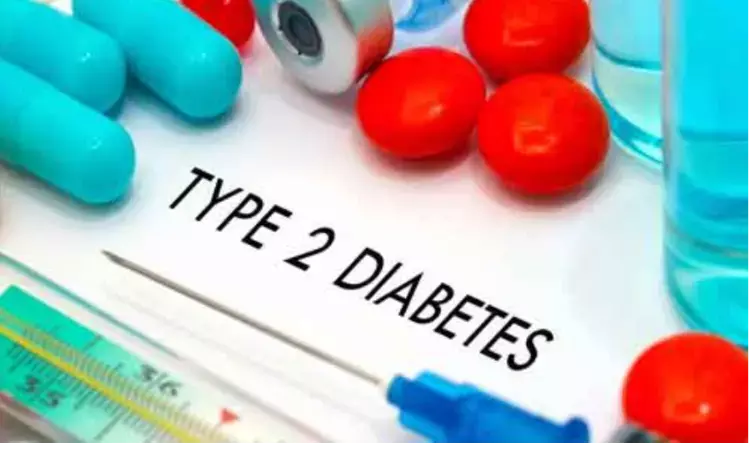- Home
- Medical news & Guidelines
- Anesthesiology
- Cardiology and CTVS
- Critical Care
- Dentistry
- Dermatology
- Diabetes and Endocrinology
- ENT
- Gastroenterology
- Medicine
- Nephrology
- Neurology
- Obstretics-Gynaecology
- Oncology
- Ophthalmology
- Orthopaedics
- Pediatrics-Neonatology
- Psychiatry
- Pulmonology
- Radiology
- Surgery
- Urology
- Laboratory Medicine
- Diet
- Nursing
- Paramedical
- Physiotherapy
- Health news
- Fact Check
- Bone Health Fact Check
- Brain Health Fact Check
- Cancer Related Fact Check
- Child Care Fact Check
- Dental and oral health fact check
- Diabetes and metabolic health fact check
- Diet and Nutrition Fact Check
- Eye and ENT Care Fact Check
- Fitness fact check
- Gut health fact check
- Heart health fact check
- Kidney health fact check
- Medical education fact check
- Men's health fact check
- Respiratory fact check
- Skin and hair care fact check
- Vaccine and Immunization fact check
- Women's health fact check
- AYUSH
- State News
- Andaman and Nicobar Islands
- Andhra Pradesh
- Arunachal Pradesh
- Assam
- Bihar
- Chandigarh
- Chattisgarh
- Dadra and Nagar Haveli
- Daman and Diu
- Delhi
- Goa
- Gujarat
- Haryana
- Himachal Pradesh
- Jammu & Kashmir
- Jharkhand
- Karnataka
- Kerala
- Ladakh
- Lakshadweep
- Madhya Pradesh
- Maharashtra
- Manipur
- Meghalaya
- Mizoram
- Nagaland
- Odisha
- Puducherry
- Punjab
- Rajasthan
- Sikkim
- Tamil Nadu
- Telangana
- Tripura
- Uttar Pradesh
- Uttrakhand
- West Bengal
- Medical Education
- Industry
Addition of incretin-based drugs better than 'switching' in cases of SGLT2 inhibitor failure, study says

China: The addition of incretin-based drugs for adults with type-2 diabetes not well controlled with sodium-glucose cotransporter-2 inhibitors (SGLT2i) may be a better option than switching SGLT2i with a new class of drug, suggests a recent study. The study appears in the Journal of the American Heart Association (JAHA).
Initiating incretin‐based drugs as an add‐on was associated with risks of clinical endpoints similar to switching treatments. Also, the combination approach led to better blood sugar and weight control.
An incretin‐based therapy consists of dipeptidyl peptidase‐4 inhibitors (DPP4i) and glucagon‐like peptide‐1 receptor agonists (GLP1RA). They are alternative antidiabetic agents with demonstrated efficacy and general tolerability. However, there is not much evidence in comparing treatment modification by substitution or add‐on of glucose‐lowering medications in type 2 diabetes patients.
Considering the above, Carlos K. H. Wong, The University of Hong Kong, Hong Kong SAR, China, and colleagues aimed to compare switching versus add‐on of incretin‐based drugs among patients with type 2 diabetes on background SGLT2 inhibitors in a population‐based, retrospective cohort study.
The study was conducted using the IQVIA Medical Research Data consisting of adults with type 2 diabetes on background SGLT2i from 2005 to 2020. New users of incretin‐based drugs were assigned to the "Switch" group if they had discontinued SGLT2i treatment, or the "Add‐on" group if their background SGLT2i was continued. Patients' baseline characteristics were balanced between groups.
All‐cause mortality, cardiovascular diseases, hypoglycemia, kidney diseases, and ketoacidosis were the study outcomes. Observation of patients was done from the index date of initiating incretin‐based drugs until the earliest of an outcome event, death, or data cut‐off date. Comparisons of changes in anthropometric and metabolic parameters were done between groups from baseline to 12‐month follow‐up.
Salient findings of the study include:
- A total of 2888 patients were included, classified into "Switch" (n=1461) or "Add‐on" group (n=1427). Median follow‐up was 18 months with 5183 person‐years.
- Overall, no significant differences in the risks of study outcomes were observed between groups; however, patients in the "Add‐on" group achieved significantly greater reductions in glycated hemoglobin, weight, percentage weight loss, and systolic blood pressure than their "Switch" counterparts.
"While there was no identification of the significant differences in the risks of various clinical endpoints between switching and add‐on approaches in the current study, they should be interpreted with caution owing to the relatively short follow‐up period and hence the small number of events that occurred," wrote the authors.
Meanwhile, several metabolic benefits of the combination ("Add‐on") approach were significantly higher than that of switching, including a reduction in weight and blood pressure, and better glycemic control over the 12‐month follow‐up.
"Hence, there is a need for further studies with observation periods and randomized controlled trials to clarify the risk and benefits of the two treatment modalities," they concluded.
Reference:
Lau KTK, Wong CKH, Au ICH, Lau WCY, Man KKC, Chui CSL, Wong ICK. Switching to Versus Addition of Incretin-Based Drugs Among Patients With Type 2 Diabetes Taking Sodium-Glucose Cotransporter-2 Inhibitors. J Am Heart Assoc. 2022 Apr 5;11(7):e023489. doi: 10.1161/JAHA.121.023489. Epub 2022 Mar 24. PMID: 35322676.
KEYWORDS: incretin-based drugs, type 2 diabetes, SGLT2 inhibitors, JAHA, American heart association, diabetes medications, drugs, diabetes, Carlos K H Wong, drug class, add on therapy, glucagon like peptide 1 receptor agonists, dipeptidyl peptidase 4 inhibitors
Dr Kamal Kant Kohli-MBBS, DTCD- a chest specialist with more than 30 years of practice and a flair for writing clinical articles, Dr Kamal Kant Kohli joined Medical Dialogues as a Chief Editor of Medical News. Besides writing articles, as an editor, he proofreads and verifies all the medical content published on Medical Dialogues including those coming from journals, studies,medical conferences,guidelines etc. Email: drkohli@medicaldialogues.in. Contact no. 011-43720751


